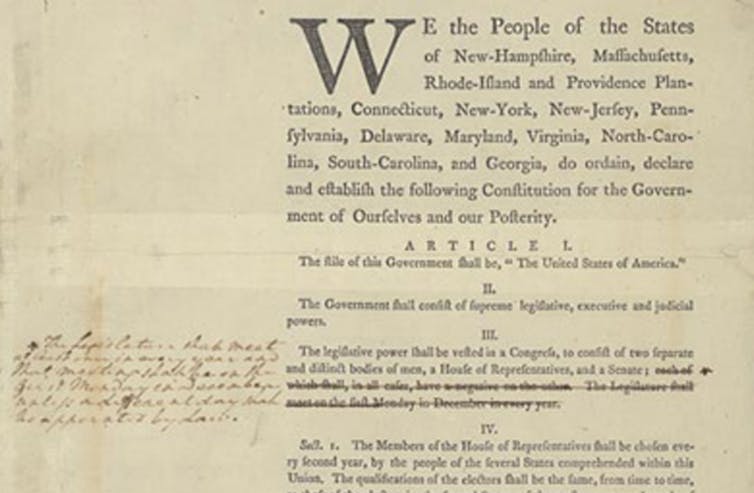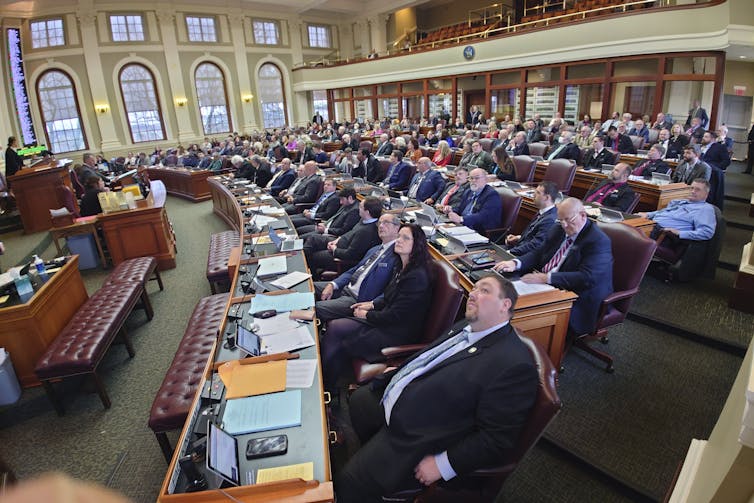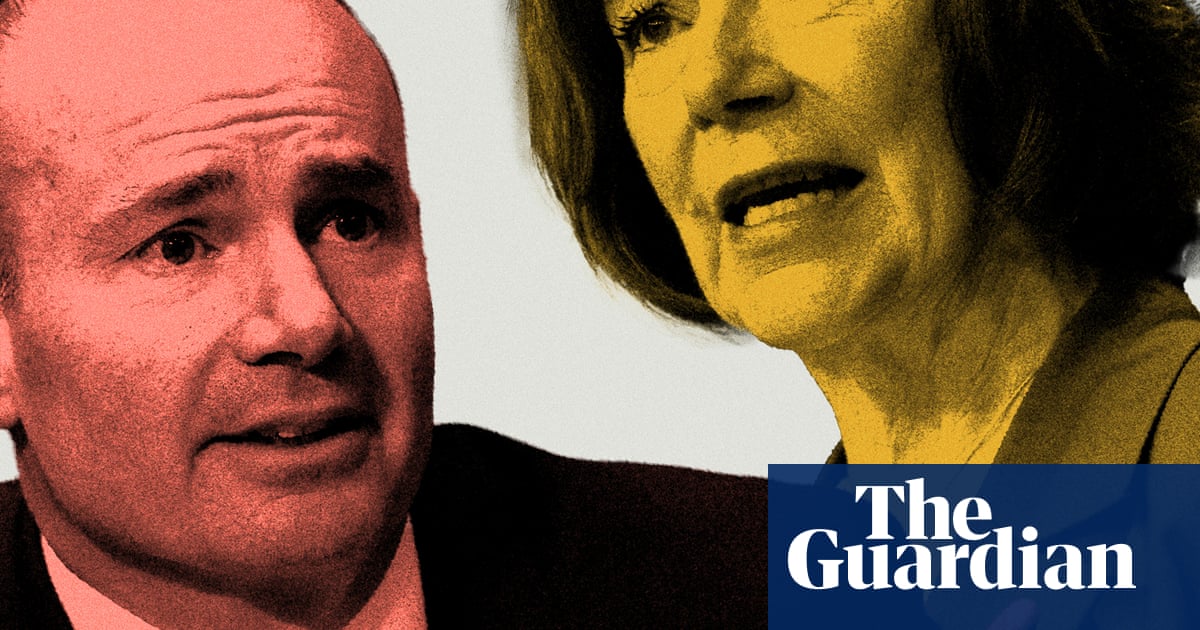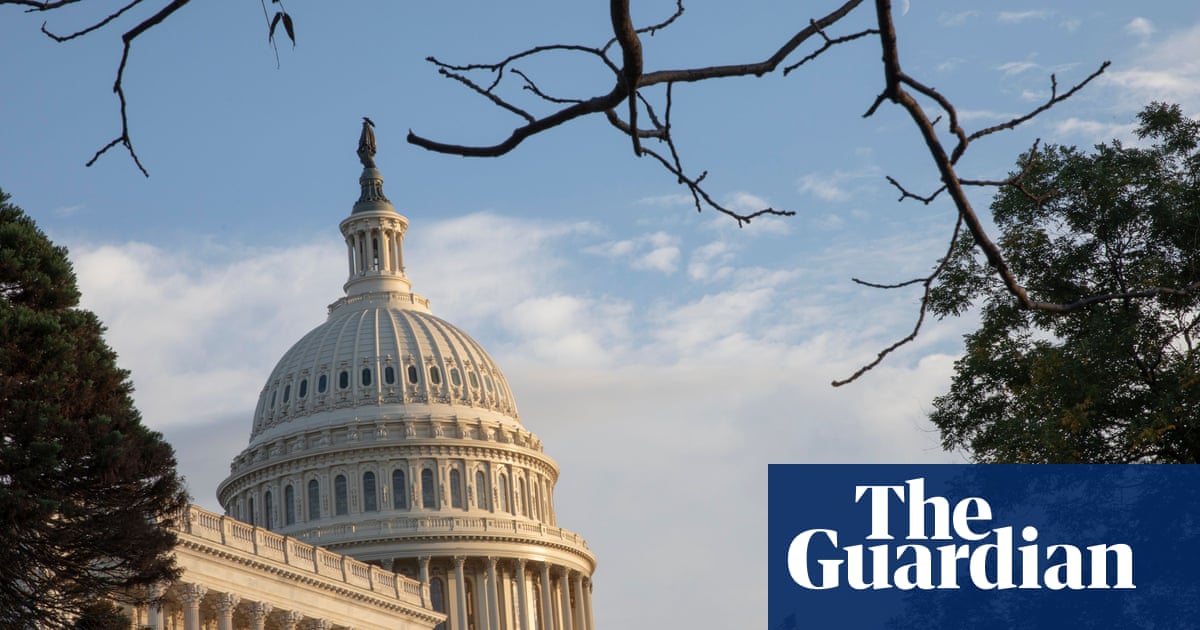Get rid of states? Legal scholar Stephen Legomsky, who taught for 34 years at the Washington University in St. Louis School of Law, has just published a book, “Reimagining the American Union,” that proposes a radical idea: Abolish state government. The Conversation’s politics and democracy editor, Naomi Schalit – a former statehouse reporter herself – interviewed Legomsky about the provocative idea behind his book, in which he advocates moving most of the functions of state government down to the local level, closer to those represented and governed by it.
You propose abolishing states. Why?
The book is a thought experiment. The proposal I’m offering is long term. I realize we need states during the current political moment.
I think the states are the root cause of many, if not most, of the current dangers faced by U.S. democracy. I also see the states as a significant source of fiscal waste. We don’t need three levels of government – national, state and local – all regulating us and all taxing us. Two would do just fine. And after careful, detailed analysis, I concluded that every benefit ever claimed for state government could be achieved at least as well, and in many cases better, by the local governments.
I’m imagining the framers sitting in Independence Hall. And you go back in time and suggest to them not having states. I think most of them would drop dead at the thought, because it ultimately implies a much more powerful federal government. What would you say to them?
After they stop laughing, I would emphasize that I’m not proposing a wholesale transfer of power from the states to an all-powerful, all-knowing central government. Yes, some of the functions currently performed by the states could better be performed at the national level, but I’m proposing that the lion’s share devolve down to the local governments, which are even closer to the people they represent than the state legislatures can ever be.
Some of the most ardent Federalists, including Alexander Hamilton and James Wilson, referred to the states as “artificial beings” or “imaginary beings.” They accepted the states only because keeping them was politically essential to getting the required nine state ratifications, not because they thought states were a good idea.

What functions would your plan hand over to the federal government?
A prime example is licensing. I looked up all the different occupations that require state licenses. I was astonished: practically every health care profession, barbers, engineers, lawyers, architects, the list is endless.
If you live near a state line, you can’t practice in both states unless you get two licenses. If you move to another state, you have to get another license. This seems silly. The human anatomy, human hair, engineering principles, don’t change as you cross from New York to New Jersey. Nor do we need 50 different state driver’s licenses; a single national license administered through local agencies would be more efficient.
You say states are the root cause of the greatest threats to American democracy. What are those threats?
The structural threats are those that are baked into the Constitution itself. The Electoral College is one. On five occasions, the Electoral College has awarded the presidency to the candidate whom the voters rejected nationwide. And there were many, many near misses where the popular vote loser almost became president, making many such future instances a statistical certainty.
Perhaps even more important, every state, no matter how large or how small, gets the same number of U.S. senators. In fact, a majority of the U.S. population is represented by only about 18% of the Senate. The minority gets the other 82%.
These counter-majoritarian defects in the elections of both presidents and senators have a ripple effect. They skew the composition, and thus the decisions, of the federal courts. Three of the current Supreme Court justices were appointed by President Donald Trump after he had lost the national popular vote; five of the current Supreme Court justices were confirmed by senators who collectively represented only a minority of the U.S. population.
Here’s one especially jarring statistic: From 1969 until today, the Democratic presidential nominees won the national popular vote in a slight majority of the elections. Yet, during the presidential terms that resulted from those elections, Republican presidents have gotten to make 15 of the 20 Supreme Court appointments.
The Constitution also gives the states broad powers to regulate and run national elections. State legislatures have used those powers to pass gerrymandering, voter suppression and other counter-majoritarian laws.
If you devolve these functions and services to localities, wouldn’t you end up with a mirror of the current state-level structure? Wouldn’t this just send a lot of state personnel down to the local level?
Yes, much of that structure would devolve. However, I see that as a good thing. Devolution is unavoidable in a country this size. Not everything can be done by the central government. The question for me is, do we need two levels of subordinate political subdivisions or one? One seems more efficient. And when problems are too big for one local government to handle on its own, it can partner with other local governments or with the national government, just as many local governments do today.

If there were no states to gerrymander or pass voter-suppression laws, wouldn’t some national government agency just do it instead?
Redistricting would be performed by a nonpartisan redistricting commission that I propose be made up of technicians, mainly demographers, statisticians and geographers, under broad, general principles enacted by Congress. That’s what almost every other democracy in the world does today.
Why did you write this book?
For a long time, I’ve been distressed about so many of the dangers to our democracy. So, one day, I found myself compiling what ended up becoming a fairly long mental list of all of my democracy-related grievances.
A list of grievances like in the Declaration of Independence!
That’s a nice analogy. And as I thought about that list, it suddenly struck me that the vast majority of these problems couldn’t occur without states. That got me thinking about whether we really need states in the first place.
If it’s just a thought experiment, something that’s not going to happen, why would you think it’s worthwhile spending time writing this?
And why would I be so vain as to think anybody would want to waste their time reading it?
And your answer is, ‘Because I’m an academic!’
It’s that, plus more. I do hope there’s some scholarly value in this. But I’m also writing for the long term. States are secure for now, but history teaches us that the more distant future is full of surprises.

 German (DE)
German (DE)  English (US)
English (US)  Spanish (ES)
Spanish (ES)  French (FR)
French (FR)  Hindi (IN)
Hindi (IN)  Italian (IT)
Italian (IT)  Russian (RU)
Russian (RU)  8 hours ago
8 hours ago
























Comments